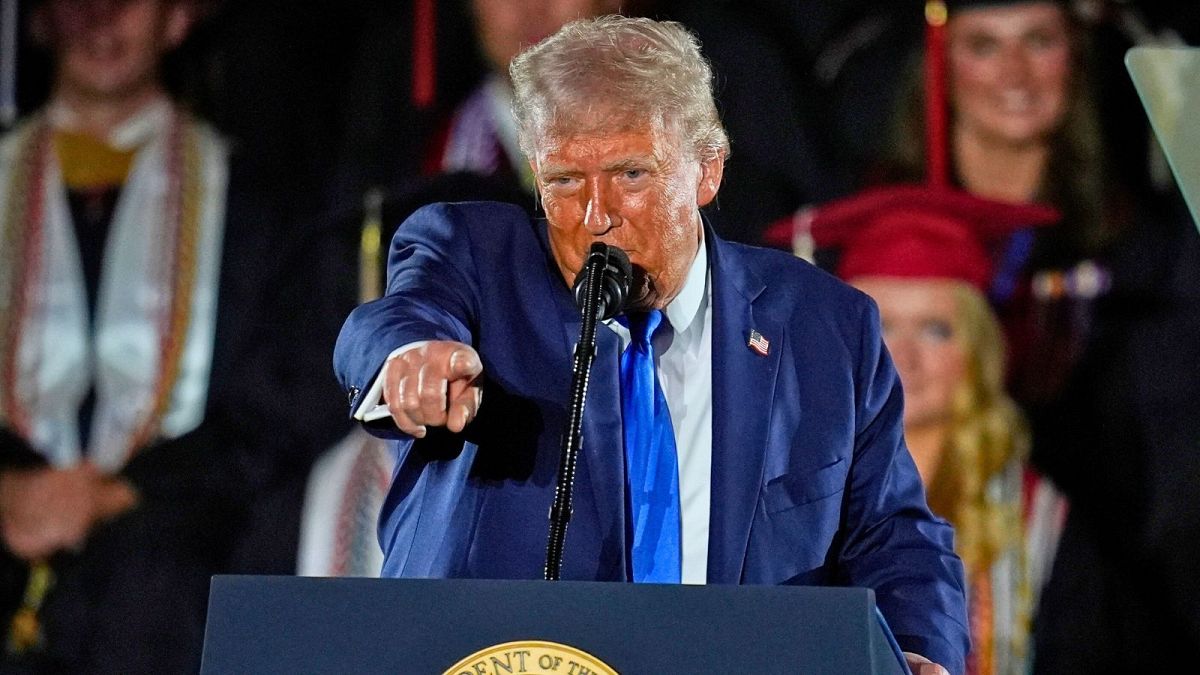The Trump Administration filed lawsuits against two US states on Wednesday, to stop them from taking legal action against fossil fuel companies for harms caused by climate change. On Thursday, the Department of Justice (DOJ) sued two more states over their climate laws.
Officials in the four Democratic states – Hawaii and Michigan, New York and Vermont – are defiant in the face of these unprecedented lawsuits.
It fits a strong pattern of anti-climate action measures that Trump has pursued during his first 100 days back in office. On the campaign trail last year, he pledged to “stop the wave of frivolous litigation from environmental extremists.”
That was again the tone in a statement from Attorney General Pamela Bondi about the recent lawsuits. “These burdensome and ideologically motivated laws and lawsuits threaten American energy independence and our country’s economic and national security,” she wrote.
The DOJ claims the states’ climate actions conflict with federal authority and Trump’s energy dominance agenda – after the president signed an executive order declaring a national energy emergency on his first day in office, 20 January.
Here’s what is happening in each state, and how leaders have responded.
Lawsuits in Hawaii and Michigan are ‘a surprising debasement’, Democrats say
Despite the threat, Hawaii filed its lawsuit against seven groups of affiliated fossil fuel companies and the American Petroleum Institute on Thursday. It alleges harm to public trust resources, negligence and more, the Associated Press reports.
Governor Josh Green said he is targeting fossil fuel companies that should take responsibility for their role in climate change impacts on the state, including 2023’s deadly Lahaina wildfire.
“This lawsuit is about holding those parties accountable, shifting the costs of surviving the climate crisis back where they belong, and protecting Hawaii citizens into the future,” he said in a statement.
The litigation filed by the US Justice Department on Wednesday said the intended lawsuit would constitute an “extraordinary extraterritorial reach” that would unlawfully undermine federal regulation of greenhouse gas emissions.
The DOJ’s comments applied to Michigan, too, which is also battling oil and gas companies for alleged climate damages.
Democratic Attorney General Dana Nessel announced last year her intention to sue the fossil fuel industry for its role in negatively impacting the state’s climate and environment.
In a statement shared yesterday, Nessel said “I remain undeterred in my intention to file this lawsuit the President and his Big Oil donors so fear.”
She called the lawsuit a “surprising debasement” of the White House and Justice Department and said filing it before Michigan had even sued was “at best frivolous and arguably sanctionable.”
The White House and the oil industry “will not succeed in any attempt to pre-emptively bar our access to make our claims in the courts,” she added.
New York and Vermont defend Superfund Acts for climate
The DOJ has also sued New York and Vermont, challenging their climate superfund laws that were approved last year.
These Superfund Acts – modelled after the 45-year-old federal superfund law designed to address the harm associated with hazardous waste sites – would force fossil fuel companies to pay into state-based funds based on previous greenhouse gas emissions.
The DOJ called the acts “a transparent monetary-extraction scheme.” It argued the states’ acts are also looking to regulate greenhouse gas emissions – nationwide and globally – thereby violating federal government authority.
In response, a spokesperson for New York Governor Kathy Hochul said the Democrat leader “believes corporate polluters should pay for the damage done to our environment – not everyday New Yorkers. We will not back down, not from Big Oil, and not from federal overreach.”
Vermont Attorney General Charity Clark said she looked forward to representing Vermont in this case.
‘An aggressive move in support of the fossil fuel industry’
Legal experts have expressed surprise and concern over the government’s moves this week.
“It’s highly unusual,” Michael Gerrard, founder and faculty director of the Columbia University Sabin Center for Climate Change Law, told AP regarding the cases of Hawaii and Michigan.
“What we expected is they would intervene in the pending lawsuits, not to try to preempt or prevent a lawsuit from being filed. It’s an aggressive move in support of the fossil fuel industry.”
Ann Carlson, an environmental law professor at the University of California, Los Angeles, noted that Environmental Protection Agency (EPA) administrator Lee Zeldin said his agency is seeking to overturn a finding under the Clean Air Act that greenhouse gases endanger public health and welfare.
“On the one hand the US is saying Michigan, and other states, can’t regulate greenhouse gases because the Clean Air Act does so and therefore preempts states from regulating,” Carlson said.
“On the other hand the US is trying to say that the Clean Air Act should not be used to regulate.”

